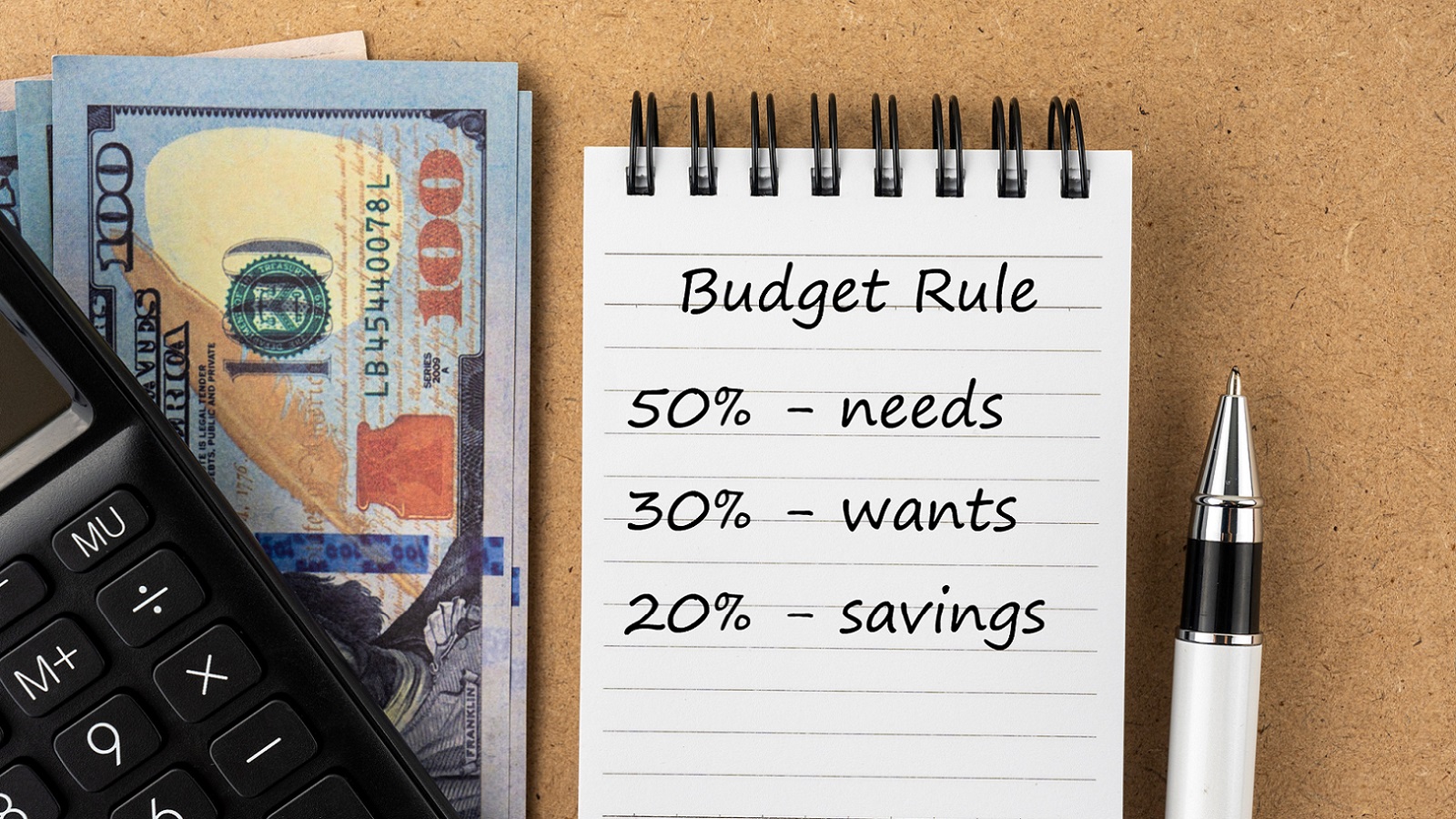10 Ways to Trick Yourself Into Saving
Follow these tips to spend less and pocket the money you save.

Profit and prosper with the best of Kiplinger's advice on investing, taxes, retirement, personal finance and much more. Delivered daily. Enter your email in the box and click Sign Me Up.
You are now subscribed
Your newsletter sign-up was successful
Want to add more newsletters?

Delivered daily
Kiplinger Today
Profit and prosper with the best of Kiplinger's advice on investing, taxes, retirement, personal finance and much more delivered daily. Smart money moves start here.

Sent five days a week
Kiplinger A Step Ahead
Get practical help to make better financial decisions in your everyday life, from spending to savings on top deals.

Delivered daily
Kiplinger Closing Bell
Get today's biggest financial and investing headlines delivered to your inbox every day the U.S. stock market is open.

Sent twice a week
Kiplinger Adviser Intel
Financial pros across the country share best practices and fresh tactics to preserve and grow your wealth.

Delivered weekly
Kiplinger Tax Tips
Trim your federal and state tax bills with practical tax-planning and tax-cutting strategies.

Sent twice a week
Kiplinger Retirement Tips
Your twice-a-week guide to planning and enjoying a financially secure and richly rewarding retirement

Sent bimonthly.
Kiplinger Adviser Angle
Insights for advisers, wealth managers and other financial professionals.

Sent twice a week
Kiplinger Investing Weekly
Your twice-a-week roundup of promising stocks, funds, companies and industries you should consider, ones you should avoid, and why.

Sent weekly for six weeks
Kiplinger Invest for Retirement
Your step-by-step six-part series on how to invest for retirement, from devising a successful strategy to exactly which investments to choose.
If cheap is chic, then saving is suddenly sexy. America Saves Week [February 21-28], takes on new meaning when the U.S. savings rate, which had dipped into negative territory, headed up to 4.6% last year. The savings rate could climb as high as 6.5%, according to Allianz Group Economic Research.
You know you’re on to something when investing icons such as Burton Malkiel and Charles Ellis jump on the bandwagon. Malkiel and Ellis are authors of a nifty little book called The Elements of Investing. The book is just 154 pages long, including glossary, and its investing advice can be summed up in four words: “Keep it simple, sweetheart,” a strategy I wholeheartedly endorse.
But, say Malkiel and Ellis, “it all starts with saving.” Who would have imagined that this legendary Wall Street duo would be advising readers to buy next year’s Christmas cards on December 26 or rent a movie instead of going out? People at all income levels tell me that they have trouble putting money aside because they’re living paycheck to paycheck. But I’m convinced that saving is a classic case of mind over money. Here are ten surefire ways to trick yourself into spending less and saving more:
From just $107.88 $24.99 for Kiplinger Personal Finance
Become a smarter, better informed investor. Subscribe from just $107.88 $24.99, plus get up to 4 Special Issues

Sign up for Kiplinger’s Free Newsletters
Profit and prosper with the best of expert advice on investing, taxes, retirement, personal finance and more - straight to your e-mail.
Profit and prosper with the best of expert advice - straight to your e-mail.
Know your plastic personality. Disciplined credit-card holders can earn rewards points by using their cards for all their purchases and paying the bills in full each month. Consumers with less self-control may want to use debit cards to make sure that they don’t spend more than they have. In either case, your monthly statement provides a handy record of areas where you’re leaking cash.
Don’t trust yourself to pay yourself first. Instead, have someone else do it for you. Sign up for your employer’s retirement plan. Set up an automatic deposit with your bank to seed your emergency fund. Even Uncle Sam will jump-start your retirement savings by automatically depositing your tax refund in an IRA. And you’ll never miss money you don’t see.
Do what my son Peter does: Deposit your paycheck and other money to your savings account instead of checking. You’re much less likely to spend the money if you have to transfer it from savings. “That really hurts,” says Peter.
Instead of hitting the cash-back button for $35 every time you go to the drugstore or supermarket, limit yourself to one ATM withdrawal per week and make your money last.
When you make a credit-card purchase, record it immediately in your checking-account register. You won’t be surprised when the credit-card bill arrives, and you will have enough money to pay it in full.
When you subtract a check from your account, round up the amount to the next dollar. That way, you’ll always have a slush fund. Your bank may even do this for you. Sounds like small potatoes, but even if it’s only $100 every couple of months, that’s still money in the bank.
Toss your spare change into a fun savings bank or glass jar -- anything that will catch your eye and your quarters. I know one person who accumulates $900 to $1,000 a year this way and uses the money to buy holiday gifts.
Bag the savings from brown-bag lunches. Each time you bring your lunch to work or pass up the temptation to buy a latte, take the money you would have spent and put it in your cash jar. It’s an immediate reward for your self-discipline.
Pay yourself after you’ve paid off a debt. Once you finish paying off a loan or credit-card balance, keep writing the check but send it directly to a savings or investment account.
Can’t decide between two items in a store? Give yourself a cooling-off period. Chances are you won’t go back.
Remember, if money is power, then saving money is empowering. It gives you financial security and the freedom to make choices. Every once in a while I tap my own slush fund to send my three grown children checks to treat themselves to dinner. They appreciate the gesture and I have fun making it.
Profit and prosper with the best of Kiplinger's advice on investing, taxes, retirement, personal finance and much more. Delivered daily. Enter your email in the box and click Sign Me Up.

Janet Bodnar is editor-at-large of Kiplinger's Personal Finance, a position she assumed after retiring as editor of the magazine after eight years at the helm. She is a nationally recognized expert on the subjects of women and money, children's and family finances, and financial literacy. She is the author of two books, Money Smart Women and Raising Money Smart Kids. As editor-at-large, she writes two popular columns for Kiplinger, "Money Smart Women" and "Living in Retirement." Bodnar is a graduate of St. Bonaventure University and is a member of its Board of Trustees. She received her master's degree from Columbia University, where she was also a Knight-Bagehot Fellow in Business and Economics Journalism.
-
 Quiz: Do You Know How to Avoid the "Medigap Trap?"
Quiz: Do You Know How to Avoid the "Medigap Trap?"Quiz Test your basic knowledge of the "Medigap Trap" in our quick quiz.
-
 5 Top Tax-Efficient Mutual Funds for Smarter Investing
5 Top Tax-Efficient Mutual Funds for Smarter InvestingMutual funds are many things, but "tax-friendly" usually isn't one of them. These are the exceptions.
-
 AI Sparks Existential Crisis for Software Stocks
AI Sparks Existential Crisis for Software StocksThe Kiplinger Letter Fears that SaaS subscription software could be rendered obsolete by artificial intelligence make investors jittery.
-
 I Need to Cut $1,000 From My Monthly Budget, and I've Already Given Up Starbucks and Dining Out. What Else Can I Do?
I Need to Cut $1,000 From My Monthly Budget, and I've Already Given Up Starbucks and Dining Out. What Else Can I Do?Here are some creative ways to save up to $1,000 a month, even if you feel like you've already made all of the obvious cuts.
-
 I'm a Government Employee and Need to Get By Until the Shutdown Ends. What Can I Do?
I'm a Government Employee and Need to Get By Until the Shutdown Ends. What Can I Do?The second-longest shutdown in history is leaving many federal workers with bills due and no paycheck to cover them. Here's what you can do to get by.
-
 What Does Medicare Not Cover? Eight Things You Should Know
What Does Medicare Not Cover? Eight Things You Should KnowMedicare Part A and Part B leave gaps in your healthcare coverage. But Medicare Advantage has problems, too.
-
 The 50-30-20 Budget Rule: A Simple Way to Save Money
The 50-30-20 Budget Rule: A Simple Way to Save MoneySaving Using the 50-30-20 budget rule is an easy way to save. It helps you prioritize saving while paying off debt.
-
 'Food Tax': Which States Still Tax Groceries?
'Food Tax': Which States Still Tax Groceries?State Tax Ten states still tax groceries, but that figure is shrinking.
-
 How Our Family Fights Inflation
How Our Family Fights InflationBudgeting Millennials typically spend more than other generations on certain expenses that have been increasing most rapidly. Here are some tips to cut your losses.
-
 Gas Prices Around the World
Gas Prices Around the WorldBudgeting Many world gas prices can make what Americans pay at the pump seem like a bargain. But not all.
-
 What You Can Do About Medical Debt
What You Can Do About Medical DebtBudgeting Millions of Americans are awash in debt from medical care. If you’re one of them, we have your options, whether the bills are new or a collector is calling.